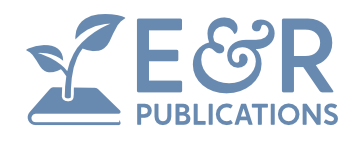
You Are a Math Person, Believe It or Not
Share
Kasi Allen, Ph.D. tells us why some people would rather lick the floor than work with numbers

I was 15 years old, sitting in grade 10 (Sophomore) maths, feeling utterly alone in a room full of my peers.
At first I’d put up my hand (a lot) to ask for help, but soon stopped after I realised how basic my questions sounded. Everyone else got it the first time, and there I was asking the math-equivalent of “but how do you know those two musical notes are different just by listening to them?” You just know, right? Well, with math-related concepts, I didn’t just know.
It was an awful feeling that made a painful dent in my self-esteem.
“Ha ha! I’m in the dumb class now,” I joked the following year on my way to remedial math, almost succeeding at looking like I didn’t care.
Facts don’t lie; no way was I “dumb”. I got straight As in right-brain subjects like Drama, Music, English, and History. Science and math — another story. They were dull necessities for most people I knew, but for me it was like being a monolingual Cantonese speaker in a class where the text was Mandarin. Looked familiar, sounded foreign.
I’d picked up French in an immersion class, but bombed out with the language of numbers.
As an adult, my eyes glaze over and chronic yawning sets in when I’m asked to look at numbers, and that’s the best-case scenario. When the pressure to do something with those numbers is on, the old anxiety twists my gut and I unconsciously shift into mental lockdown.
It’s worse when a kind-hearted soul insists on trying to help. “It’s easy!” They proclaim. “Just take the glaxgledziczmmlrzsine and put it over the ooupiqulzngqrnaufghtan, add them backwards, then divide them by their square roots — see?”
Sorry, I don’t. What comes intuitively to you, sounds like complicated nonsense to me. I can’t do maths, alright? My brain doesn’t work that way.
Or… does it?
Filling in the Gaps
“Let me begin and end by telling you in no uncertain terms: Whether you believe it or not, you are a math person.” ~ Jennifer L. Ruef
Could it possibly be true?
Me? A math person?
Somewhere, somehow, in the last few years and for the first time since high school — I graduated in 1984 — I’m starting to believe I can one day fill the gaps in the porous foundation of my mathematical knowledge.
This is a stunningly massive mental shift for me! It’s beautiful and frightening and exciting, all at the same time.
Time and experience have taught me that you can’t learn a new idea that builds upon linked foundational concepts if your understanding of those concepts is missing or incomplete. The boat won’t float until those gaps are filled.
Another truth I’m glad to have learned, is that the brain I brought to math class was the only brain I had. Whatever it could or could not do in that class, it was still a marvel and a miracle and a beautiful, beautiful thing.
It wasn’t my fault it didn’t work the same way as my peers, and it wasn’t my teachers’ fault their training hadn’t included ways to make mathematical concepts accessible to a brain like mine.
Well, I’m in the driver’s seat of these little grey cells, so I’m going to do something about those gaps.
I’ve signed up with the Khan Academy, starting at grade five arithmetic. For the first time in over forty years, I feel a sense of hope and confidence that it’s not too late to finish building my numeracy foundation. Who’d have thought I could ever make, never mind get excited about, a goal to pass a grade 12 maths exam!
Math Trauma is Real
Research suggests that what I’ve been experiencing could be maths anxiety, and this may have caused the mental lockdown preventing me from making progress. It’s a relief to know that it’s not just me. I’m one of many who have a dysfunctional relationship with numeracy.
Other factors that can affect a student’s mathematical ability are the cognitive disorder Developmental Discalculia (DC), and math trauma.
Dr. Kasi Allen, Ph.D., is a professor of math education and self-proclaimed “math activist”. She says that—
“Math trauma stems from an event, a series of events, or a set of circumstances experienced by an individual as harmful or threatened such that there are lasting adverse effects on the individual’s functioning and well-being in the perceived presence of mathematics.”
Dr. Allen has done extensive research into math trauma and how to facilitate healing from it.
In her free webinar for math educators, Healing Our Students, Our Classrooms, and Our Discipline, she speaks of 8 traumatizing classroom traditions:
- “One shot only” assessments
- Grouping students by ability
- Using speed to measure understanding
- Prioritizing individual work over collaboration
- Telling students it’s ok to not be good at math
- Teaching algorithms and tricks over problem solving and thinking
- Focusing on answers rather than sound reasoning
- Privileging one “right way” rather than multiple pathways to one right answer
According to Allen, removing these harmful traditions will reduce the number of math-traumatized kids coming out of our classrooms.
She also recommends giving children the chance to tell their math stories, or “mathographies”. Allen believes that children who can see their math identity as an evolving rather than a static state, have a greater chance of acknowledging the negativity they are feeling and then letting it go.
Dr Nic of Creative Maths has compared math trauma to her own PTSD after experiencing the Christchurch earthquakes. I’m thankful to her for introducing me to the work of Kasi Allen, Ph.D., through her excellent blog post on healing from math trauma.
If you are a mathematics teacher, or a parent, I hope you are taking this seriously. You may not have received the training that experts like Dr. Allen are qualified to give, but you can take steps to educate yourself and to focus on helpful classroom and family traditions. You don’t own your student’s journey with trauma or healing, but you can absolutely help to pave the way for positive progress.
Parents, if you had terrible experiences with mathematics as a child or teen, please be intentional about not transmitting your trauma and negative attitudes on to your children. I’d love to give a hug and a listening ear to the girl whose mother referred to her as “mathtarded” in front of Dr. Allen. Labels are a two-edged sword, so be very careful with them, or leave them well alone.
Forget the Hard Stuff — Let’s Have Some Fun !
My experience with numbers hasn’t been all bad. Leaving formal education out of the picture, I can see that I’ve always had a knack for recognizing patterns, and associating numbers with people and feelings. This means I can easily recognise musical intervals (test yourself here), I find it easy to remember passwords using melody and rhythm, and as a teen I intuitively associated people’s physical characteristics and personality with their birthdays and (then 6-digit) phone numbers.
Note to self: Do not tell people you haven’t seen for 30 years that you still remember their birthday and old phone number. It makes for awkward conversations.
This year I’ve been having fun learning different ways of memorising longer strings of numbers.
Pilish
A form of constrained writing based on pi, where the number of letters in each word correspond with the numbers of π in the order that they occur. The premise is that words make mind-pictures, which are easier to remember than numbers on their own.
Mike Keith wrote his book Not A Wake, using the first 10,000 digits of pi. It begins —

Fun party trick: Challenge your friends to memorise as much of the following thirty digit number as they can, in one minute:
332824834254534555434143644285
Get your friends to cover the number so you can’t see it, while you write it out completely from memory. The key? It’s the number of letters in each word of the chorus of “You Are My Sunshine”.
Earlier this year I presented this challenge to a group of teens, quietly giving the key to one student before the challenge began—that was fun! The runner-up recalled an impressive fourteen of the thirty digits with no help at all.
When attempting to write in this broader form of Pilish, you’ll rapidly find that it’s a lot easier to go from words to numbers than the other way around.

The Major System
This is a phonetic number system, often used by memory athletes to help them remember entire decks of cards. Less ambitious people such as myself find it helpful for passwords, and telephone, bank account, and insurance numbers.
Vowels have no value, and are implied.
Like Pilish, the Major System is also much easier to use when going from words to numbers. The way memory champions get around this is by associating a Person, an Action, and an Object (PAO) with each number combination from 0 to 100. It took me almost a month to build my own, because I was determined to find people, actions and objects that worked as fully with the Major System as I could manage.
To remember the random number 174257 using my personalised PAO, I would imagine the Pluto the dog (17) running (42) round and round on a spinning log (57).
If you’re new to the idea of using numbers to remember words, this probably looks strangely complicated and a wee bit crazy to you. My experience is like that of a lot of people who familiar with the Major System: it gets vastly easier in a short space of time, and doesn’t take long to become automatic.
Memory Palace
Patrick Jane used a memory palace in The Mentalist, as did Benedict Cumberbatch’s Sherlock Holmes.
My home is the framework I use to remember the plays of Shakespeare in order, thanks to The Memory Palace, a short, sweet, and cheap book by Lewis Smile. Next on my list is using Smile’s book to remember all of Charles Dickens’ literary works.
I’m sad that Lewis hasn’t written his Human Calendar book yet. If this quote is anything to go by, it would have been another great read:
“Be not afraid of greatness: some are born great, some achieve greatness, and some learn to calculate the day of the week in their mind and are completely untouchable on the greatness scales.”
A memory palace works beautifully for remembering imagery associated with multiple number strings created with the Major System.
You Are a Math Person
In case you’re thinking I’ve lost sight of Kasi Allen Ph.D.’s 6th point, which warns us against “Teaching algorithms and tricks over problem solving and thinking”, there’s no cause for concern.
The problem isn’t with the tricks — it’s with prioritising them over problem solving and learning how to think mathematically.
For some sufferers of maths anxiety or maths trauma, it’s a great idea to take the pressure off and turn numbers into a game they can understand. Associating them with sounds and words? Even better!
The thought that my intuition with music has mathematical links is strangely delicious, and it’s a taste I’ll be exploring some more.
The only way to learn something is to start from what you already know, and add to it.
As Jennifer Ruef noted, “The next time you find yourself inventing a solution to some problem — how to estimate a length of hose, which supermarket special is actually the better deal, which route will get you where you need to go the fastest, remember this: You, my friend, are a math person.”
Also published on Medium
